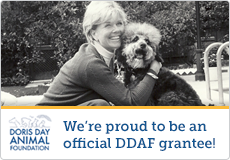|
The Daily Oakland Press
Animal workers seeing more parvovirus cases By ANN ZANIEWSKI PONTIAC – Animal rescue workers are seeing an increase in the number of parvovirus cases in Pontiac. Advertisement Pam Porteous, the manager of rescue group Animal Care Network, has picked up about 90 dogs and puppies with the virus over the past three months in Pontiac. About 50 dogs were picked up in the same period last year. Porteous said there’s been a surge of calls from people seeking advice who have pets that are displaying classic parvo symptoms. Based on the phone calls and the actual number of dogs picked up, Porteous said the virus has been detected on 100 streets in the city. “I just think a lot of people don’t know about it,” she said. The virus attacks rapidly, dividing cells in the lining of the gastrointestinal tract, causing the lining to deteriorate. Fluids cannot be absorbed into the body. Along with vomiting and bloody diarrhea, dogs often seem depressed and lose their appetite. The disease can reduce white blood cell counts, predisposing dogs to septicemia. Parvovirus typically affects puppies younger than 1, but in rare cases is found in older dogs. Some breeds, such as Rottweilers, are particularly susceptible. Most dogs with the virus die from dehydration or septicemia if they don’t receive medical care. “It’s a painful death for a dog or puppy,” Porteous said. Parvovirus is transmitted though infected fecal matter. A dog can get the disease if it ingests even a small amount. Karen Fidell, an emergency care veterinarian at Oakland Veterinary Referral Services in Bloomfield Hills, said dogs can carry the virus without being sick. She said it’s important to keep puppies who have not had their full series of vaccinations away from bark parks and other places where they will encounter other dogs. She said the average hospital stay for a dog with parvovirus is four to seven days. Sick dogs receive IV fluids, antibiotic drugs and anti-vomiting drugs. Fidell said she has not seen a marked increase in the number of parvo cases at Oakland Veterinary Referral Services. Jonathan Ross, who practices at Ross Hospital for Animals in Bloomfield Hills, is one of three veterinarians who treat the animals Porteous picks up in Pontiac. He has worked with animal rescue workers in Pontiac for 15 years. “So many people are not vaccinating their dogs and their puppies,” he said. “We are definitely seeing a huge increase (in parvovirus cases) this summer … I think we’ve got a little outbreak going on.” He said he is not seeing the disease in vaccinated animals. There’s a large population of unvaccinated dogs in Pontiac, he said. “I think there’s a lot of breeding of pitbulls, and a lot of sick puppies. These people walk these animals all over the place,” making them more susceptible to coming in contact with the virus, Porteous said. Puppies should have their first round of vaccinations at about six weeks old, and then have three or four more rounds of shots every three weeks. Dogs need to have their full series of shots to be protected from the virus. |
Michigan Animal Adoption Network
501(c) 3 non-profit dedicated to animal care, rescue and adoption in Metro Detroit




